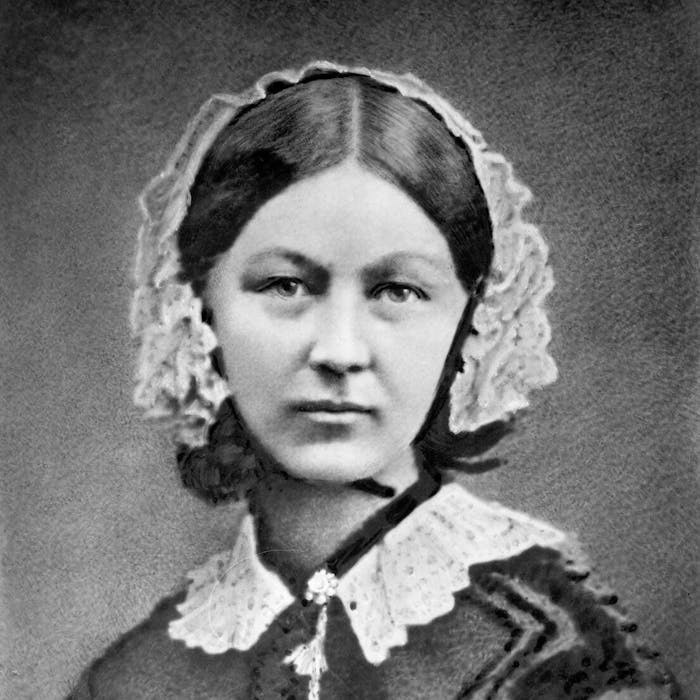
Florence Nightingale - transforming the work of nursing
Florence Nightingale came to prominence while serving as a manager and trainer of nurses during the Crimean War in the 1850s, in which she organised care for wounded soldiers. She won nursing a favourable reputation for her innovative approach to care, and became an icon of Victorian culture.
Nightingale was admired and romanticised by the Victorians as "The Lady with the Lamp", recalling her making rounds of wounded soldiers in the wards at night.
Florence Nightingale was born in a well-to-do family in 1820. When she was 18, she met the English-born Parisian hostess Mary Clarke, whose disdain for the frivolous outlook of her female peers, and belief that women should be capable of so much more, was a major influence on the young Florence.
When she was 24, Nightingale became a nurse, despite the opposition of her family. At the time, nursing had a poor reputation for being relatively strict and formal, though often ineffective. The wealthy and literate Nightingale changed this completely – bringing a rigorous scientific method and training to the profession. Through her writings, and her friendships with politicians and other influential people, she was able to institute a great many reforms, including an emphasis on good hygiene.
During the Crimean War Scutari Barracks was converted into a British military hospital, known as Scutari Hospital. The inadequate building was not designed to cope with the thousands of sick and injured soldiers who were placed there for medical care. When Nightingale arrived with her party of nurses in 1854 she was horrified by the filthy conditions and the suffering which she witnessed. Her work at Scutari not only made her famous, but gave her a burning desire to improve hospitals and healthcare provision more generally to try and prevent such avoidable suffering from happening again.
Though she had many male friends and admirers, Florence Nightingale remained single as she was financially secure and believed that marriage would interfere with her calling as a nurse. She could be rather exasperated by her female contemporaries, criticising early women's rights activists for decrying an alleged lack of careers for women whilst at the same time, lucrative medical positions, under the supervision of Nightingale and others, went perpetually unfilled.
Florence Nightingale died in 1910, and there is a museum dedicated to her in central London.
Further reading
Links to external websites are not maintained by Bite Sized Britain. They are provided to give users access to additional information. Bite Sized Britain is not responsible for the content of these external websites.
